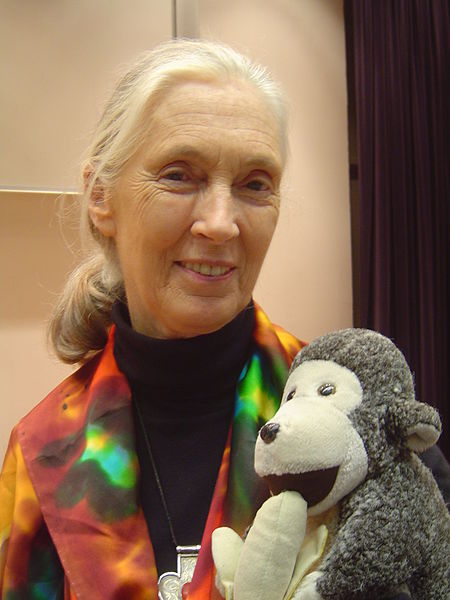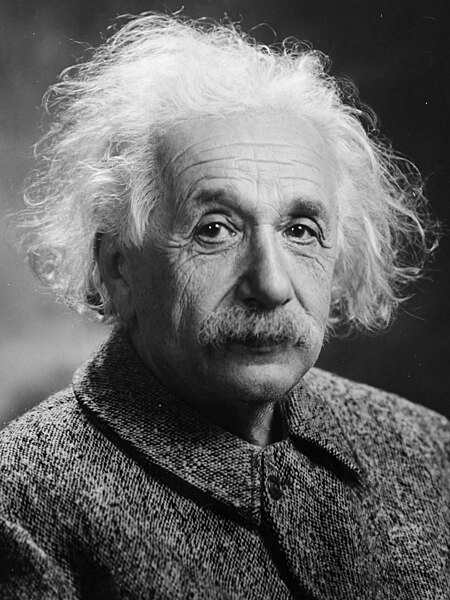Trailblazing Leadership: Dr. Jane Goodall’s Legacy of Compassion and Change

Unearthing Leadership Gems: The Journey of Dr. Jane Goodall
In the annals of leadership, there are figures whose lives and work illuminate the very essence of what it means to lead, to inspire, and to effect profound change. Dr. Jane Goodall, a name that resonates with reverence and admiration, is unquestionably one such luminary. A woman whose unwavering dedication to the natural world has transcended continents, cultures, and generations, Dr. Goodall’s extraordinary journey offers an invaluable tapestry of leadership lessons that span far beyond the realm of conservation science. As we delve into her life and legacy, we are presented with a masterclass in leadership development that has been honed over more than six decades of tireless work.
In an era where leadership is often associated with corporate boardrooms, political offices, and the relentless pursuit of profit, Dr. Goodall’s story stands as a shining testament to the transformative power of leadership grounded in compassion, ethical principles, and an unyielding commitment to a greater purpose. Her unique trajectory, from a young British woman with a passion for animals to a globally renowned scientist and environmental advocate, serves as a beacon for leaders across industries who seek to make a meaningful impact on the world.
While this article primarily aims to shed light on the remarkable leadership journey of Dr. Jane Goodall, it also serves as a compelling narrative for those seeking guidance in their own leadership endeavors. It is a chronicle of resilience, curiosity, and the unwavering belief in the possibility of change, even in the face of seemingly insurmountable odds. Dr. Goodall’s life offers a treasure trove of leadership wisdom, ranging from the profound lessons she learned in the African wilderness to her remarkable ability to inspire others through her storytelling and communication skills.
As we embark on this exploration of Dr. Goodall’s life and work, it is essential to understand that her leadership journey transcends the confines of any single field. While she is undoubtedly an icon in the world of primatology and conservation, her influence extends to areas such as ethical leadership, effective communication, and the power of storytelling in shaping public perception and driving social change. Dr. Goodall’s leadership legacy is not constrained by boundaries; it is a force that has touched hearts, changed minds, and catalyzed action on a global scale.
In the following sections, we will delve into the various facets of Dr. Goodall’s leadership journey, from her formative years and groundbreaking research to her advocacy for the environment, unwavering commitment to ethical values, and the profound impact of her communication and storytelling. We will also address the challenges and controversies she faced, offering valuable insights into how a leader can navigate adversity while staying true to their mission.
In essence, the life and leadership of Dr. Jane Goodall offer a rich and textured narrative that is both inspirational and instructive. Her story challenges us to rethink our perceptions of leadership, encouraging us to embrace a more holistic and compassionate approach. Through her remarkable example, we discover that true leadership is not merely about achieving personal success, but about leaving a lasting legacy of positive change, one that resonates through the ages and continues to shape the world for the better. In the pages that follow, we invite you to embark on a journey through the remarkable life of Dr. Jane Goodall and uncover the profound leadership lessons that lie therein.
Early Life and Inspirations
Dr. Jane Goodall’s journey towards becoming a global icon of leadership in conservation and compassion began in the unassuming town of Bournemouth, England, on April 3, 1934. Her early years were marked by an innate curiosity and a deep affinity for animals, setting the stage for her remarkable future.
Childhood experiences and early interests
Jane’s childhood was a nurturing ground for her burgeoning love for nature. Her father, Mortimer Herbert Goodall, an engineer and inventor, instilled in her a sense of wonder and a passion for exploration. Her mother, Margaret Myfanwe Joseph, fostered her intellectual curiosity and encouraged her to question the world around her. It was in her family’s garden that Jane’s fascination with animals first took root. She spent countless hours observing birds, insects, and other creatures, forming the foundation of her lifelong connection to the natural world.
This early exposure to the wonders of the animal kingdom ignited a fire within young Jane. She maintained a diary in which she meticulously documented her observations, a practice that would become integral to her scientific career in later years. Her childhood journaling not only reflected her keen observational skills but also demonstrated her ability to patiently and attentively study the world around her—a skill set that would serve her well during her groundbreaking research in Gombe Stream National Park.
Role models and influencers
Growing up in the mid-20th century, Jane Goodall was surrounded by a world where women were often relegated to traditional roles. However, her mother’s open-mindedness and her own determination allowed her to break free from societal constraints. Jane drew inspiration from the fictional character Tarzan and his wife, Jane, whose adventurous spirit and close connection with wildlife captivated her imagination. These early influences fostered a sense of possibility, instilling in her the belief that she could one day realize her dream of working with animals in Africa.
As Jane continued to develop her interests, she encountered the works of renowned anthropologist and paleontologist Louis Leakey, whose groundbreaking discoveries in human evolution resonated deeply with her. Leakey’s research demonstrated the profound connections between humans and primates, inspiring Jane to envision herself conducting similar research. It was this intersection of inspiration from both fictional and real-life figures that set her on the path to become a trailblazer in primatology.
How her upbringing shaped her leadership style
Dr. Goodall’s formative years laid the groundwork for the leadership style she would later exhibit. Her childhood experiences fostered qualities that would become hallmarks of her leadership journey:
1. Curiosity: Jane’s insatiable curiosity about the natural world fueled her thirst for knowledge. This insatiable appetite for learning would be a driving force throughout her life, pushing her to continually seek answers and solutions.
2. Observation: Her early practice of observing and documenting the behavior of animals in her garden developed her powers of keen observation—an essential skill for any scientist. This ability to pay close attention to detail and patiently gather data would prove invaluable during her fieldwork with chimpanzees.
3. Determination: Growing up in a time when few women pursued careers in science, Jane Goodall’s determination to follow her passion and dreams in the face of societal norms demonstrated the resilience that would serve her well when confronting obstacles later in life.
4. Empathy: Her early interactions with animals cultivated a deep sense of empathy and compassion. This empathy would become a cornerstone of her leadership, influencing her ethical stance on conservation and animal welfare.
As we delve deeper into Dr. Goodall’s journey, we will see how these foundational qualities and early inspirations shaped her approach to leadership and her ability to inspire others to take action on behalf of our planet and its inhabitants. Jane’s story reminds us that leadership is often forged in the crucible of one’s upbringing and early experiences, and it is these formative years that help lay the groundwork for a lifetime of impactful leadership.
The Groundbreaking Research
Dr. Jane Goodall’s transformation from an eager young woman with a passion for animals into a trailblazing primatologist and conservationist began with her groundbreaking research in the dense forests of Gombe Stream National Park in Tanzania. This pivotal phase of her life not only expanded our understanding of chimpanzee behavior but also provided invaluable insights into leadership qualities that would come to define her legacy.
Dr. Goodall’s pioneering work with chimpanzees in Gombe Stream National Park
In July 1960, armed with little more than a notebook, binoculars, and a pair of boots, 26-year-old Jane Goodall set out on her first expedition to Gombe Stream. Her mission: to study chimpanzees in their natural habitat, a task never before attempted in such an immersive and comprehensive manner. At that time, she was living in a tent in the remote African wilderness, gradually gaining the trust of these elusive creatures.
Dr. Goodall’s early observations dispelled the prevailing notion that humans were the only species capable of complex thought, tool use, and emotional connections. She documented chimpanzees fashioning tools to extract termites from mounds, forming intricate social hierarchies, and displaying a wide range of emotions, from joy and affection to aggression and grief. Her meticulous record-keeping and patient observations laid the foundation for a new era in primatology and fundamentally reshaped our understanding of the animal kingdom.
Challenges and obstacles faced during her research
Dr. Goodall’s work in Gombe was not without its challenges. The remote location, initially skeptical scientific community, and her status as a young, untrained researcher presented significant obstacles. However, it was her determination, resilience, and unwavering belief in the importance of her work that propelled her forward.
One particularly notable challenge was the initial reluctance of chimpanzees to accept her presence. They regarded her with suspicion, sometimes fleeing at the sight of her. To overcome this, Jane adopted a patient, non-intrusive approach, gradually habituating the chimps to her presence over months and years. Her ability to build trust, not through force but through understanding and respect for their natural behaviors, exemplified a key aspect of her leadership: the importance of patience and persistence in achieving long-term goals.
Leadership qualities demonstrated during this phase
-
Perseverance: Dr. Goodall’s determination to continue her research in the face of adversity and skepticism was a testament to her unwavering perseverance. She believed in the importance of her work and refused to be deterred by the challenges she encountered.
-
Resilience: Living in a primitive camp, facing isolation, and dealing with the often harsh realities of fieldwork required tremendous resilience. Dr. Goodall’s ability to bounce back from setbacks and maintain her enthusiasm for the research demonstrated her resilience, a critical leadership quality.
-
Adaptability: In the unpredictable world of wild chimpanzees, Jane had to adapt her methods and expectations. Her willingness to adjust her approach and remain open to new discoveries showcases her adaptability as a leader, a quality that is crucial in navigating complex and ever-changing environments.
As we examine this phase of Dr. Goodall’s life, it becomes evident that her experiences in Gombe not only advanced our understanding of primatology but also provided valuable leadership lessons. Her ability to persevere through adversity, maintain resilience in challenging circumstances, and adapt to changing conditions are qualities that resonate in the world of leadership beyond scientific research. These qualities, which were honed in the African wilderness, would later play a significant role in her leadership journey as an advocate for conservation and compassionate stewardship of our planet.
Environmental Advocacy
As Dr. Jane Goodall’s groundbreaking research in Gombe Stream National Park continued to shape our understanding of chimpanzee behavior and human-animal connections, her journey took a transformative turn, leading her from the heart of the African wilderness to the global stage of environmental advocacy. In this section, we explore her transition from researcher to advocate and the profound leadership lessons that emerged from this evolution.
Transition from research to conservation
While Dr. Goodall’s work with chimpanzees was undeniably groundbreaking, it soon became clear that understanding and protecting these remarkable creatures required more than just scientific research. The forests and habitats that chimpanzees depended on were under increasing threat from deforestation, habitat loss, and poaching. This realization marked a critical turning point in her life—a shift from being an observer to becoming a tireless advocate for conservation.
In 1977, Dr. Goodall founded the Jane Goodall Institute (JGI) to support research, conservation efforts, and education programs. This organization, driven by her vision and commitment, would go on to make an indelible mark on the world of conservation. Her transition from research to conservation illustrates a key leadership lesson: the willingness to pivot and adapt one’s mission in response to changing circumstances and emerging priorities.
Founding of the Jane Goodall Institute
The Jane Goodall Institute was founded on principles of community-based conservation and empowerment. Rather than imposing solutions from the outside, Dr. Goodall and her team worked alongside local communities, engaging them in the protection of their natural surroundings. This approach, rooted in respect for indigenous knowledge and local perspectives, is a testament to her leadership philosophy of collaboration and partnership.
Under her guidance, JGI implemented programs that addressed not only the welfare of chimpanzees but also the well-being of people living in and around chimpanzee habitats. This holistic approach recognized the interconnectedness of all life forms and demonstrated the importance of ethical leadership that considers the needs of both the environment and the communities it sustains.
Global impact and legacy
Dr. Goodall’s advocacy extended far beyond Tanzania’s borders. She embarked on a tireless journey to raise awareness about conservation and environmental issues on a global scale. Her lectures, books, and documentaries reached millions, inspiring individuals to take action for the planet. Through her efforts, she transformed the way people thought about their relationship with nature, underscoring the idea that we are not separate from the environment but an integral part of it.
The legacy of Dr. Goodall’s environmental advocacy endures through the millions of individuals and organizations that have been inspired by her work. The Roots & Shoots program, an initiative of JGI, empowers young people worldwide to become compassionate leaders and agents of change in their communities. This legacy underscores the profound leadership lesson of inspiring and nurturing the next generation of leaders who will carry forward the mission of conservation and compassion.
Leadership principles applied in advocacy
-
Vision and mission: Dr. Goodall’s unwavering vision for a world where humans coexist harmoniously with nature served as a guiding star throughout her advocacy journey. Her clear sense of purpose and mission laid the foundation for her leadership in the environmental movement.
-
Collaboration and partnerships: Rather than working in isolation, Dr. Goodall forged partnerships with governments, NGOs, and local communities to create a collective impact. Her ability to collaborate with diverse stakeholders demonstrated the power of partnerships in achieving environmental goals.
-
Inspiring action: Dr. Goodall’s communication skills and ability to connect with people on a personal level played a pivotal role in mobilizing individuals and organizations to take action. She understood the importance of emotional resonance in motivating others to join the cause.
In this phase of her journey, Dr. Goodall’s leadership evolved from a focus on scientific inquiry to a global movement for conservation and compassion. Her ability to translate her passion into action, to unite people from different backgrounds, and to foster a sense of shared responsibility for the planet exemplifies the transformative potential of leadership grounded in ethical principles and a commitment to a higher purpose. As we continue to explore her leadership story, we uncover not only the profound impact of her advocacy but also timeless leadership principles that can guide us in our own efforts to effect positive change in the world.
Ethical Leadership and Values
At the heart of Dr. Jane Goodall’s remarkable journey as a leader lies a deep commitment to ethical principles and values that have consistently guided her actions and decisions. This section delves into how her unwavering ethical stance shaped her leadership style and the invaluable lessons it offers for leaders across various domains.
Dr. Goodall’s commitment to ethical treatment of animals
From her earliest interactions with animals in her family’s garden to her pioneering research with chimpanzees, one consistent thread in Dr. Goodall’s life has been her profound respect and compassion for all living beings. Her work demonstrated that animals are sentient, intelligent creatures capable of experiencing a wide range of emotions. This understanding fundamentally influenced her ethical stance on animal welfare.
Dr. Goodall’s commitment to the ethical treatment of animals extended to advocating for the end of practices such as invasive research on chimpanzees and the bushmeat trade. Her leadership in this regard emphasized the importance of aligning one’s values with their actions—a lesson applicable to leaders in any field.
Connection between her values and leadership style
The ethical values that Dr. Goodall held dear—compassion, empathy, and respect for all life—were not abstract principles but integral components of her leadership style. These values influenced her decision-making and interactions with others, making her a more authentic and relatable leader.
-
Integrity: Dr. Goodall’s integrity was unwavering. She remained true to her beliefs and consistently acted in ways that aligned with her ethical principles. This authenticity garnered trust and respect from those who worked alongside her, reinforcing the vital role of integrity in leadership.
-
Authenticity: Her authenticity, combined with a genuine love for the natural world, made her a compelling and relatable leader. People were drawn to her passion and sincerity, highlighting the importance of being true to oneself as a leader.
-
Empathy: Dr. Goodall’s ability to connect with animals on an emotional level translated into a deep empathy for the challenges faced by both humans and wildlife. This empathy guided her approach to conservation, emphasizing the need to consider the welfare of local communities as well as endangered species.
Dr. Goodall’s leadership serves as a testament to the transformative power of ethical values in guiding decisions, building trust, and inspiring others to join a shared mission. Her unwavering commitment to ethical leadership challenges contemporary leaders to reflect on their values and consider how these values can shape their leadership journey.
Lessons on ethical leadership for modern leaders
-
Integrity and Consistency: Modern leaders can learn from Dr. Goodall the importance of maintaining consistency between one’s values and actions. Integrity is not a negotiable aspect of leadership; it forms the bedrock of trust and credibility.
-
Authenticity and Relatability: Embracing authenticity allows leaders to connect with their teams, partners, and stakeholders on a deeper level. Authentic leaders are not only more relatable but also more inspiring.
-
Empathy and Inclusivity: Ethical leaders recognize the interconnectedness of all life forms and prioritize empathy in their decision-making. This extends to considering the broader impact of their actions on both people and the environment.
In essence, Dr. Jane Goodall’s ethical leadership demonstrates that values are not just abstract ideals but guiding principles that can drive positive change. Her example challenges leaders across the spectrum to infuse their actions with ethics, compassion, and a commitment to the greater good. As we continue to explore her journey, we encounter an enduring lesson: ethical leadership is not just an option—it is an imperative for those who aspire to leave a lasting, positive impact on the world.
Communication and Storytelling: Jane Goodall’s Art of Inspiring Change
One of the most captivating facets of Dr. Jane Goodall’s leadership journey is her exceptional prowess in communication and storytelling. Her ability to connect with people on a deep emotional level, convey complex scientific concepts with clarity, and inspire action through compelling narratives has left an indelible mark on the world of leadership. In this section, we delve into how her communication skills became a linchpin of her leadership style and the invaluable lessons they hold for leaders seeking to effect change.
Dr. Goodall’s powerful communication skills
From the outset of her career, Dr. Goodall recognized the importance of effective communication in conveying her research findings and garnering support for her work. Her presentations and writings were imbued with a sense of wonder, authenticity, and passion that resonated with audiences worldwide. Her communication skills were not mere tools but reflections of her deep connection to her subject matter and her genuine love for the natural world.
The importance of storytelling in leadership
At the heart of Dr. Goodall’s communication prowess lies the art of storytelling. She didn’t merely present facts and figures; she crafted narratives that allowed people to connect with her experiences and the world of chimpanzees. Storytelling humanized her research and made it relatable to diverse audiences.
-
Relatability: Dr. Goodall’s ability to convey her personal journey and experiences made her relatable to people from all walks of life. This relatability, grounded in authenticity, was a cornerstone of her leadership.
-
Emotional Resonance: Her stories were imbued with emotion—joy, wonder, and sometimes heartbreak. This emotional resonance stirred empathy in her audience, fostering a deeper connection to the causes she championed.
-
Clear Messaging: Despite dealing with complex scientific concepts, Dr. Goodall excelled at presenting her ideas in a straightforward and understandable manner. Clarity in communication is a vital trait for leaders seeking to inspire change.
Tips for effective leadership communication
Leaders, regardless of their field, can draw invaluable lessons from Dr. Goodall’s communication style:
-
Find Your Authentic Voice: Authenticity is magnetic. Leaders should aim to communicate in a way that aligns with their true selves, reflecting their passion and values.
-
Craft Compelling Narratives: Storytelling is a powerful tool for engaging and inspiring others. Leaders should invest in developing their narrative skills to convey complex ideas in a relatable manner.
-
Embrace Emotional Connection: Effective communication is not just about facts and figures; it’s about forging an emotional connection with your audience. Leaders who can evoke empathy and emotion are more likely to inspire action.
-
Simplify Complexity: In a world filled with information, the ability to distill complex ideas into clear, concise messages is a leadership asset. Leaders should aim to make their communication easily digestible.
Jane Goodall’s mastery of communication and storytelling is a testament to the notion that leadership is not solely about personal charisma or technical expertise. It is also about the ability to convey a compelling vision, engage the hearts and minds of others, and motivate them to take meaningful action. As we continue to explore her leadership journey, we find that her gift for communication serves as a timeless lesson in the art of inspiring change—a lesson that resonates across industries and disciplines, inviting leaders to harness the power of their own stories to shape a better world.
Challenges and Controversies: Navigating Adversity with Grace
Dr. Jane Goodall’s leadership journey, though filled with remarkable achievements, was not without its share of challenges and controversies. In this section, we explore the difficulties she encountered along the way and the invaluable leadership lessons she offers in responding to adversity while staying true to one’s mission.
Criticisms and controversies in Dr. Goodall’s career
-
Scientific Skepticism: Early in her career, Dr. Goodall faced skepticism from some quarters of the scientific community. Critics questioned her lack of formal training and the degree of anthropomorphism in her observations of chimpanzees. Despite these challenges, she persevered, maintaining her commitment to observing and documenting the lives of her beloved chimpanzee companions.
-
Ethical Dilemmas: Dr. Goodall encountered ethical dilemmas, particularly when it came to intervening in the lives of the chimpanzees she observed. Some criticized her for providing food to the animals during periods of scarcity, arguing that this could disrupt the natural order. However, she believed in the importance of empathy and compassion in her work, making difficult decisions guided by her values.
-
Conservation and Advocacy Controversies: As she transitioned into conservation and advocacy work, Dr. Goodall faced criticism and resistance from various quarters. Some questioned her approach to community-based conservation, while others challenged her stance on controversial issues like animal rights and sustainable development. Despite these controversies, she remained steadfast in her mission to protect wildlife and habitats.
Leadership lessons from handling adversity and criticism
-
Accountability: Dr. Goodall’s response to adversity was marked by a sense of accountability. She was not afraid to acknowledge mistakes or missteps when they occurred. This transparency and willingness to learn from errors demonstrated her commitment to continuous improvement.
-
Learning from Mistakes: Instead of being deterred by criticism or setbacks, Dr. Goodall viewed them as opportunities for growth and learning. Her ability to adapt and refine her strategies in the face of adversity showcases the importance of resilience and a growth mindset in leadership.
-
Staying True to One’s Mission: Throughout her career, Dr. Goodall faced pressures to compromise on her principles or change her course. However, she remained resolute in her commitment to the welfare of animals, the environment, and future generations. Her unwavering dedication serves as a powerful example of staying true to one’s mission, even when faced with opposition.
Dr. Goodall’s journey reminds us that leadership is not immune to challenges and controversies; in fact, they are an inherent part of the leadership landscape. How leaders respond to adversity, criticism, and ethical dilemmas speaks volumes about their character and the strength of their leadership. Her ability to navigate these challenges with grace, accountability, and an unwavering commitment to her values offers invaluable lessons for leaders striving to make a positive impact, no matter the obstacles in their path.
In conclusion, Dr. Jane Goodall’s leadership journey is not merely a story of unparalleled success; it is a narrative of resilience, adaptability, and ethical leadership. Her experiences with adversity and criticism underscore the notion that true leadership is not defined solely by accomplishments but by the way leaders respond to the trials and tribulations that inevitably arise. As we continue to explore her extraordinary story, we find that her ability to confront challenges head-on while maintaining her ethical compass is a timeless lesson that empowers leaders to lead with integrity and unwavering purpose.
Legacy and Impact: The Ripple Effect of Dr. Jane Goodall’s Leadership
As we traverse the remarkable journey of Dr. Jane Goodall’s leadership, it becomes evident that her impact extends far beyond her own accomplishments. Her legacy serves as a testament to the enduring influence of ethical leadership, conservation, and compassion. In this section, we explore the lasting legacy she has left and the ripple effect it has had on individuals, organizations, and the world at large.
Assessing Dr. Goodall’s lasting influence on conservation and leadership
-
Transformative Conservation: Dr. Goodall’s pioneering work in the realm of community-based conservation fundamentally transformed the landscape of conservation efforts. Her approach, which recognizes the importance of engaging local communities and respecting indigenous knowledge, has become a model for sustainable conservation practices worldwide.
-
Empowerment of Future Leaders: Through programs like Roots & Shoots, Dr. Goodall has empowered countless young people to become compassionate leaders and environmental stewards. Her legacy lives on through these individuals, who carry forward her mission of creating positive change in their communities.
-
Influence on Ethical Leadership: Dr. Goodall’s commitment to ethical principles has inspired leaders across various fields to prioritize values and integrity in their decision-making. Her example challenges leaders to lead with compassion and consider the broader impact of their actions.
Case studies of individuals and organizations influenced by her work
-
The Roots & Shoots Movement: Dr. Goodall’s vision of empowering youth to lead change has borne fruit through the Roots & Shoots program. Countless young leaders have emerged from this initiative, working on diverse projects ranging from conservation and social justice to sustainability and education.
-
Conservation Success Stories: The Jane Goodall Institute’s approach to community-based conservation has led to success stories in various regions, from the protection of chimpanzee habitats in Africa to the restoration of critical ecosystems around the world. These achievements highlight the effectiveness of Dr. Goodall’s leadership philosophy.
-
Corporate Responsibility: Dr. Goodall’s advocacy for ethical treatment of animals and sustainable business practices has influenced corporate leaders to adopt more responsible policies. Her voice has played a role in shaping corporate social responsibility initiatives that prioritize environmental conservation and animal welfare.
The ripple effect of her leadership on future generations
Dr. Jane Goodall’s leadership has sparked a ripple effect that continues to expand and impact new generations of leaders:
-
Inspiration: Her life story serves as a wellspring of inspiration for individuals of all ages and backgrounds, encouraging them to pursue their passions and make a positive difference in the world.
-
Empowerment: Through her advocacy and educational initiatives, Dr. Goodall has empowered countless individuals to take ownership of their roles as stewards of the planet and champions of ethical leadership.
-
Interconnectedness: Dr. Goodall’s teachings emphasize the interconnectedness of all life on Earth. This perspective fosters a sense of responsibility and solidarity among leaders worldwide, driving collaborative efforts to address global challenges.
The legacy of Dr. Jane Goodall is a testament to the enduring power of ethical leadership, compassion, and a commitment to conservation. Her impact reverberates through the stories of individuals and organizations influenced by her work, as well as the broader cultural shift toward valuing environmental sustainability and ethical principles in leadership.
As leaders in various domains seek to make a meaningful impact on the world, Dr. Goodall’s legacy reminds us that the ripple effect of ethical leadership can shape a brighter future for all. Her story challenges us to consider not only the immediate outcomes of our actions but also the enduring legacy we leave for generations to come, reinforcing the profound lesson that leadership, rooted in compassion and a dedication to a greater purpose, has the power to change the world.
Jane Goodall’s Leadership Legacy
In the journey through the life and leadership of Dr. Jane Goodall, we have traversed a terrain marked by scientific discovery, environmental advocacy, ethical leadership, and the profound impact of storytelling. Her story is not just a chronicle of individual achievement but a blueprint for a new paradigm of leadership—a paradigm grounded in compassion, integrity, and an unwavering commitment to the well-being of our planet and all its inhabitants.
Key leadership lessons from Dr. Jane Goodall’s life and career
-
Resilience and Perseverance: Dr. Goodall’s tenacity in the face of challenges, whether it be scientific skepticism, ethical dilemmas, or environmental crises, underscores the importance of resilience and perseverance in leadership. Adversity is not a barrier but a stepping stone on the path to meaningful change.
-
Ethical Leadership: Her commitment to ethical treatment of animals and the environment serves as a beacon for leaders seeking to prioritize values, integrity, and empathy in their decision-making. Ethical leadership is not just a choice but an imperative for creating a better world.
-
Effective Communication and Storytelling: Dr. Goodall’s ability to connect with people through storytelling illustrates the transformative power of effective communication. Leaders who can convey their vision and values through compelling narratives are more likely to inspire action and change.
-
Legacy and Empowerment: Her enduring legacy, epitomized by the Roots & Shoots program and the global impact of the Jane Goodall Institute, demonstrates the ripple effect of leadership. True leaders empower others to take ownership of their roles as stewards of the planet and champions of ethical leadership.
Encouragement for aspiring leaders to apply these lessons in their own journeys
As we conclude our exploration of Dr. Goodall’s life and leadership, we extend an invitation to aspiring leaders to apply these lessons in their own journeys:
-
Find Your Purpose: Dr. Goodall’s journey began with a deep love for animals and a passion for understanding the natural world. Leaders should take the time to discover their own passions and purpose, as these will fuel their commitment to effecting change.
-
Embrace Diversity: Her approach to collaboration and partnerships emphasized the importance of diverse perspectives. Leaders should seek out and value the insights of individuals from different backgrounds and experiences.
-
Stay True to Your Values: In the face of adversity and criticism, Dr. Goodall remained steadfast in her commitment to her values. Leaders should hold their values as non-negotiable principles that guide their actions and decisions.
-
Inspire and Empower Others: Dr. Goodall’s work with young leaders underscores the importance of nurturing the next generation. Leaders should view their role as not only achieving personal success but also empowering others to become agents of change.
In Dr. Jane Goodall’s leadership journey, we find not only a story of remarkable achievement but a blueprint for a more compassionate and sustainable world. Her example challenges us to view leadership as a means to a greater end—a vehicle for positive change, conservation, and the elevation of ethical principles. Her life’s work inspires us to reimagine leadership as a force that transcends individual success and extends to the well-being of all life on Earth.
As we embark on our own leadership journeys, let us carry forward the lessons of Dr. Jane Goodall: to lead with integrity, to communicate with purpose, and to leave a legacy that extends far beyond our own lifetimes—a legacy that reshapes the world and leaves it a better place for generations to come.






